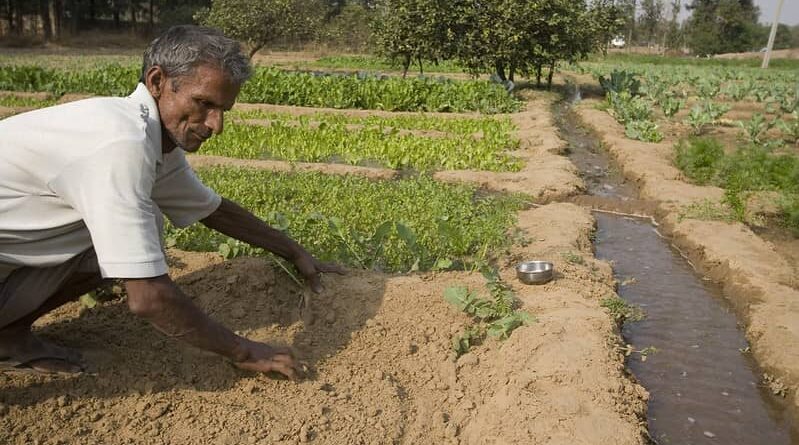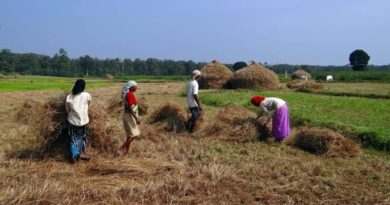Three bills aimed at transformation of agriculture and raising farmers’ income introduced in Lok Sabha
14 September 2020, New Delhi: Three bills aimed at transformation of agriculture in the country and raising farmers’ income were introduced in Lok Sabha today to replace ordinances promulgated on 5th June 2020.
- The Farmers’ Produce Trade and Commerce (Promotion and Facilitation) Bill, 2020
- The Farmers (Empowerment and Protection) Agreement of Price Assurance and Farm Services Bill, 2020
- The Essential Commodities (Amendment) Bill, 2020
Union Agriculture Minister, Mr. Narendra Singh Tomar introduced The Farmers’ Produce Trade and Commerce (Promotion and Facilitation) Bill, 2020 and The Farmers (Empowerment and Protection) Agreement of Price Assurance and Farm Services Bill, 2020, while Minister of State for Consumer Affairs, Food & Public Distribution, Mr. Raosaheb Patil Danve introduced The Essential Commodities (Amendment) Bill, 2020 in the Lok Sabha.
Read: Political clash in Punjab on agrarian ordinances
Seeking permission of the Chair to introduce the Bills, Mr. Narendra Singh Tomar said that the measures contained therein will enable barrier-free trade in agricultural produce, and also empower farmers to engage with investors of their choice. He said that these steps are only the latest in a series of measures taken by the Government, which shows its continuous commitment to championing the cause of welfare of the farmers of India.
The Farmers’ Produce Trade and Commerce (Promotion and Facilitation) Bill, 2020
The Bill seeks to provide for the creation of an ecosystem where the farmers and traders enjoy the freedom of choice relating to sale and purchase of farmers’ produce. This will facilitate remunerative prices through competitive alternative trading channels.
It will also promote efficient, transparent and barrier-free inter-State and intra-State trade and commerce of farmers’ produce outside physical premises of markets or deemed markets notified under various State agricultural produce market legislations; to provide a facilitative framework for electronic trading and for matters connected therewith or incidental thereto.
Background
Farmers in India suffered from various restrictions in marketing their produce. There wererestrictions for farmers in selling agri-produce outside the notified APMC market yards. The farmers were also restricted to sell the produce only to registered licensees of the State Governments. Further, Barriers existed in free flow of agriculture produce between various States owing to the prevalence of various APMC legislations enacted by the State Governments.
Read: Lack of progress in achieving the Sustainable Development Goals: FAO Report
This legislationis a historic-step in unlocking the vastly regulated agriculture markets inthe country.It will open more choices for the farmer, reduce marketing costs for the farmers and help them ingetting better prices. It will also help farmers of regions with surplus produce to get better prices andconsumers of regions with shortages, lower prices.
The Farmers (Empowerment and Protection) Agreement of Price Assurance and Farm Services Bill, 2020
The bill seeks to provide for a national framework on farming agreements that protects and empowers farmers to engage with agri-business firms, processors, wholesalers, exporters or large retailers for farm services and sale of future farming produce at a mutually agreed remunerative price framework in a fair and transparent manner and for matters connected therewith or incidental thereto.
Background
Indian agriculture is characterized by fragmentation due to small holding sizes and has certainweaknesses such as weather dependence, production uncertainties and market unpredictability. This makes agriculture risky and inefficient in respect of both input & output management.
Read: Around 59 lakh ha more sowing in kharif crops compared to last year
This legislation will transfer the risk of market unpredictability from the farmer to the sponsor andalso enable the farmer to access modern technology and better inputs. It will reduce cost of marketing and improve income of farmers. Farmers will engage in direct marketing thereby eliminating intermediaries resulting in full realization of price. Farmers have been provided adequate protection. Effective dispute resolution mechanism has been provided for with clear time lines for redressal.
The Essential Commodities (Amendment) Bill, 2020
The bill seeks to remove commodities like cereals, pulses, oilseeds, edibleoils, onion and potatoes from the list of essential commodities. This will remove fearsof private investors of excessive regulatory interference in their business operations.The freedom to produce, hold, move, distribute and supply will lead to harnessing of economies ofscale and attract private sector/foreign direct investment into agriculture sector.
Background
While India has become surplus in most agri-commodities, farmers have been unable to get better prices due to lack of investment in cold storage, warehouses, processing and export as theentrepreneurial spirit gets dampened due to Essential Commodities Act. Farmers suffer huge losses when there are bumper harvests, especially of perishable commodities.
Read: Haryana Government will protect the interest of farmers
The legislation will help drive upinvestment in cold storages and modernization of food supply chain. It will help both farmers and consumers while bringing in price stability. It will create competitive market environment and also prevent wastage of agri-produce that happens due to lack of storage facilities.
Photo credit: ILO in Asia and the Pacific on Visual hunt / CC BY-ND















